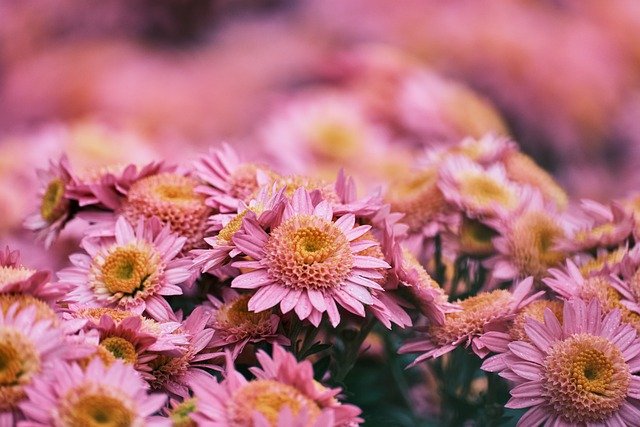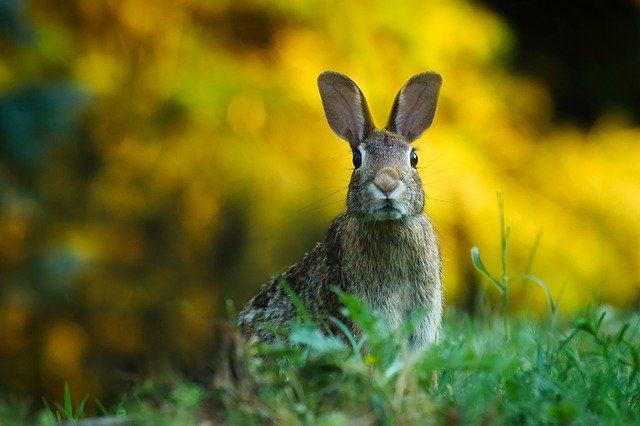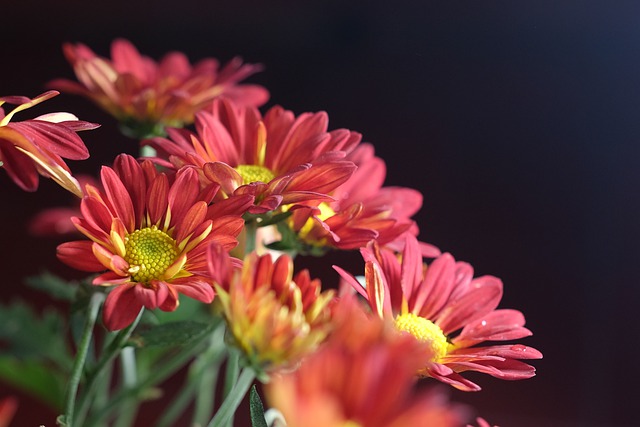Do Rabbits Eat Chrysanthemums? —Find Out If Mums Are Harmful

They are entirely inedible to them. Bunnies should not eat them since they are harmful. However, it’s still possible for these animals to nibble them, especially their young flowers. Therefore, make safety measurements for your rabbits so they won’t eat any parts like leaves, stems, or flowers of chrysanthemums. Learn more in this article about what makes chrysanthemums harmful to consume. Read on!
Table of Contents
Are Mums Poisonous?
Pyrethrum, a toxin transformed into pyrethrin, is found in chrysanthemums. Since more than 200 years ago, pyrethrum and its derivatives have been used to control insects. Sesquiterpene lactones, which are extremely allergenic, are also present in chrysanthemums. It can result in catastrophic allergic reactions in both humans and animals.
The chrysanthemum flower’s raw extract is called pyrethrum. The six esters that make up pyrethrin are selected through refinement. Pyrethrins come in two varieties: type 1 and type 2. Certain animal species are more or less harmful.
The chrysanthemum plant’s blooms and seed capsules contain high concentrations of pyrethrum. Chrysanthemums also contain sesquiterpene lactones, chemicals that cause allergic reactions and are the plant’s defensive mechanism, in addition to pyrethrum.
Protecting Chrysanthemums in Your Garden
Nobody will want to be seen or happy if they awaken to find any of your landscape or garden plants—including your chrysanthemums—eaten by house or wild rabbits. If this is a problem, you should consider different strategies to keep this pet out of the house. Bunnies can harm your crops and plants in various ways, too. Always opt for a secure method for your other pets and these particular animals. Some of the tactics frequently used to keep rabbits out of gardens, farms, or away from landscaping plants include the following:
Exclusion By Fencing
Try different ways of fencing your garden. One of the best ways to deter pests is to enclose your garden with a fence. Most tiny invaders, like rabbits, can be kept out with short, mesh fencing, but deer should be kept out with a fence at least 5 feet high. Consult a gardening specialist to determine the appropriate sort of fence depending on your goals and budget.
Rabbit Deterring Plants
You can use a variety of plants on the fence that rabbits hate to eat. Marigolds make an ideal plant since they deter rabbits and don’t need much upkeep. Due to their flavor, herbs like mint and lavender have been reported to deter pests. Before you plant, study to determine which plants are risk-free and which species will perform best for your pest problem.

Metal Cloche
Utilize a wire cover if you notice that one plant, in particular, is frequently attacked. To prevent animals from gnawing on the delicate leaves, place these over the developing plants in your garden. You may also use chicken wire. Wrap it around the plant and fasten it to form a small protection cover.
Spicy Mustard Sauce
Spraying your plants with a homemade hot pepper mixture will repel animals and make them taste terrible to any prospective pests. Mix 1 ounce of hot pepper sauce. The hotter, the better—4 drops of natural dish soap and 1 cup of fragrant leaves from plants that rabbits avoid in equal parts. Blend the ingredients in a blender with one or two cups of water until it is completely smooth. After straining the puree to remove any solids, put the mixture in a spray bottle and fill it with water. One time every week or right after each rain, mist the mix on your garden plants. Place the spray in your refrigerator after labeling the bottle.
Various Alternative Food Sources
If repelling plants or spraying doesn’t work, try providing a different food source. A piece of fresh fruit will be attractive to rabbits and other small mammals. However, birds can become attracted to this snack as well. Try using birdbaths with feeders or make your birdfeeder made from untreated lumber that has been painted white. When providing vegetables for your garden, choose those the rabbit cannot easily digest, like beans and carrots, since these items may rot in their digestive system.

